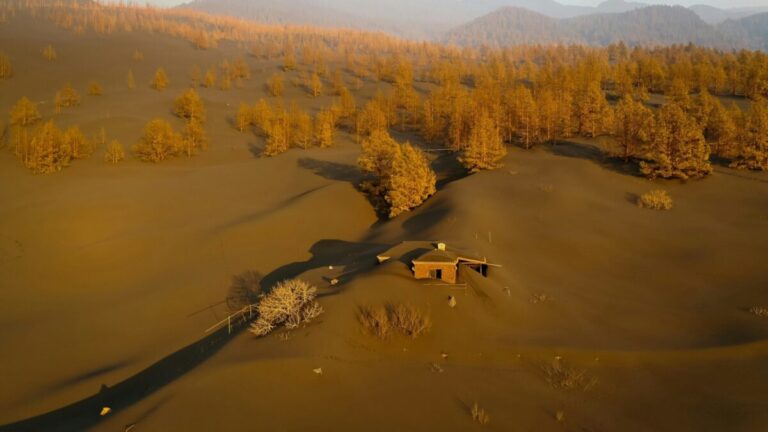Spain is reeling from the worst flooding the country has experienced in more than five decades, following a massive storm system that brought torrential rains to the Iberian Peninsula. The rains, which caused rivers to overflow, triggered catastrophic flooding in several regions, including Valencia, Catalonia, and Madrid. At least 200 people have been confirmed dead, with hundreds more still missing as rescue operations continue.
The storm, which developed over the Mediterranean, has been described as one of the most intense in recent memory. Some areas experienced rainfall rates exceeding 500mm, and several towns and villages were completely submerged. As floodwaters surged, residents had no choice but to seek refuge on rooftops or in temporary shelters. The widespread destruction of homes, roads, and infrastructure has left the nation in shock and struggling to respond to the immediate crisis.
National State of Emergency Declared
In response to the unprecedented flooding, the Spanish government has declared a national state of emergency. The government is working closely with regional authorities to provide aid and begin the long and challenging recovery process. Emergency response teams are focused on search-and-rescue operations, while efforts to restore basic services, including electricity and clean water, are underway.
The storm’s scale has overwhelmed local resources, with many affected areas still cut off from the rest of the country. As recovery teams reach more regions, the full extent of the devastation is becoming clear, with entire communities left devastated by the floodwaters.
Economic and Agricultural Impact
In addition to the human toll, the economic impact of the flooding has been severe. Spain’s agricultural sector, already facing significant challenges in recent years, has been hit hard. Crops have been destroyed, and farms have been inundated with water, leading to massive losses. The country’s transportation networks, including roads and railways, have also suffered extensive damage, disrupting the flow of goods and people.
The economic recovery will likely be a lengthy process, with initial estimates suggesting that the total cost of the damage could reach billions of euros. The disruption to vital industries, combined with the direct impact on homes and infrastructure, will be felt for years to come. Spain’s tourism sector, which plays a crucial role in the economy, has also been affected, with many popular destinations in the hardest-hit areas facing severe damage.
International Assistance and Climate Change Concerns
As Spain grapples with the immediate aftermath of the storm, the international community has stepped in to provide support. The European Union has pledged emergency funds and resources to assist in the recovery efforts, while neighboring countries such as France and Portugal have sent rescue teams and essential supplies. This regional solidarity highlights the importance of collaboration in responding to climate-related disasters.
The catastrophic flooding has also reignited urgent discussions about climate change and its increasing impact on the frequency and severity of extreme weather events. Experts warn that Spain, like many other countries, must prepare for the likelihood of more frequent and intense storms as global temperatures continue to rise. The storm has underscored the need for stronger flood defenses and infrastructure improvements in vulnerable areas to mitigate the risks posed by future natural disasters.
Calls for Better Flood Defenses and Climate Adaptation
As recovery efforts continue, experts and officials are calling for urgent action to strengthen Spain’s resilience to future flooding. The devastation caused by this storm has highlighted the critical need for better flood defenses, improved infrastructure, and comprehensive climate adaptation strategies. These measures are essential not only to protect vulnerable communities but also to safeguard the long-term sustainability of Spain’s economy and agricultural sector.
The floods of October 2024 are a stark reminder of the challenges posed by climate change, and the urgency of taking preventive measures. Building climate-resilient infrastructure, improving water management systems, and enhancing early warning systems will be key to minimizing the impact of future extreme weather events. Spain’s experience should serve as a wake-up call for countries worldwide, urging a global commitment to tackling climate change and ensuring that communities are better prepared for the disasters of tomorrow.
As Spain begins its long journey to recovery, the lessons learned from this devastating flood will shape the country’s approach to future natural disasters and climate resilience. The road to rebuilding is long, but the opportunity to adapt and build a more sustainable, disaster-ready future is one that Spain cannot afford to miss.


